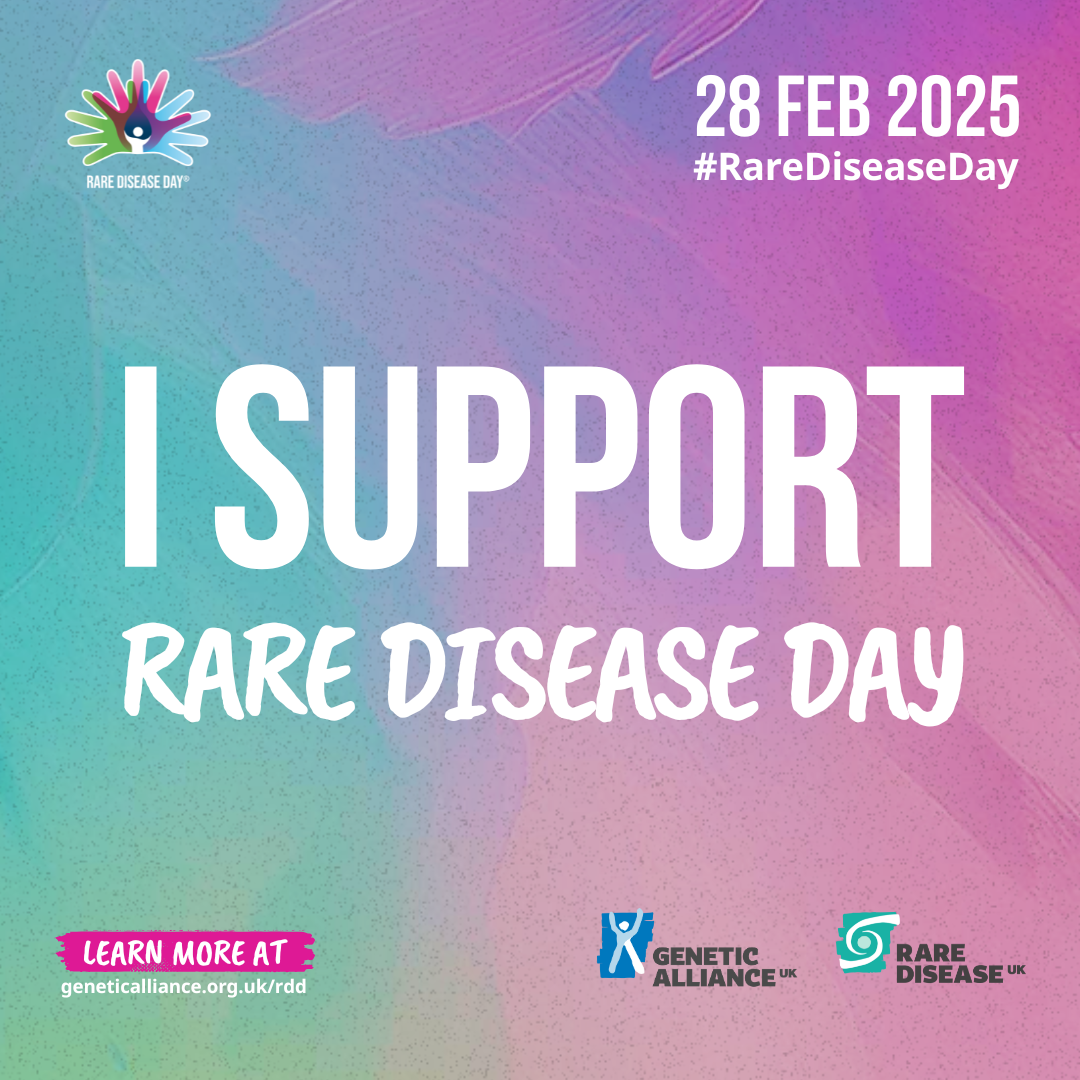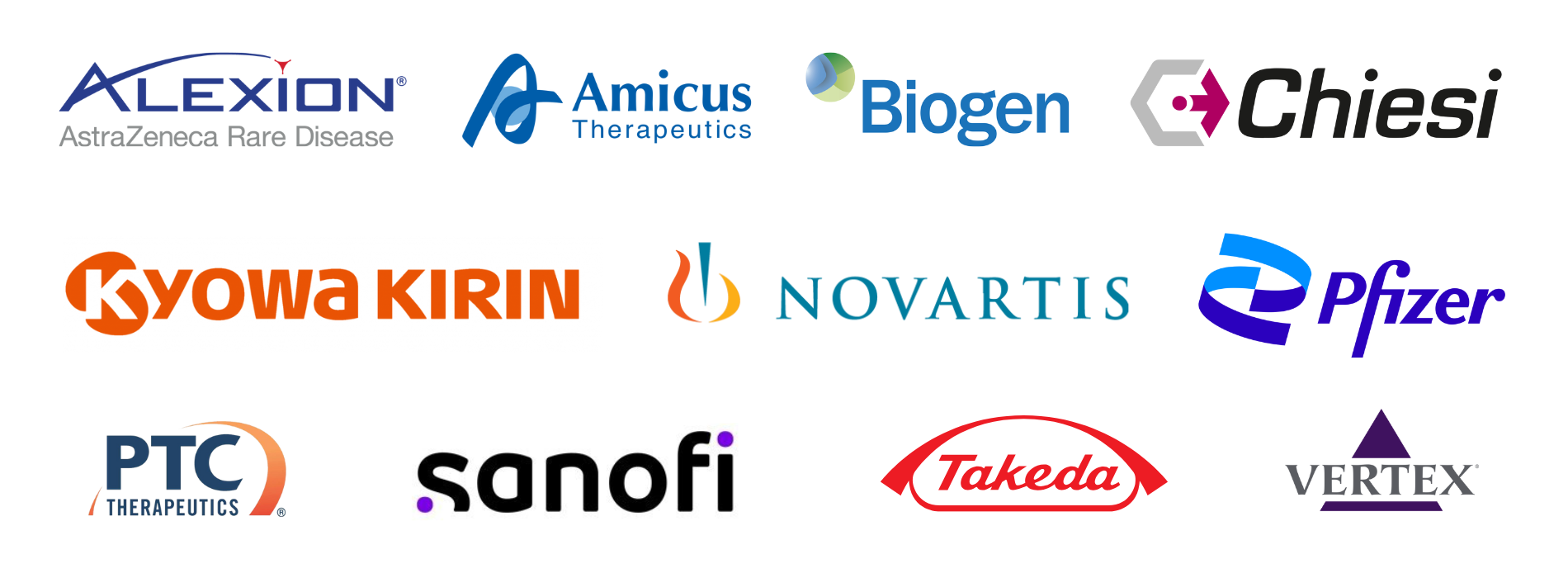About Rare Disease Day

Rare Disease Day is an important international awareness day that takes place annually on 28 February (or 29 February in leap years). This date was chosen because 29 February is the rarest day of the year. Thousands of rare disease organisations from around the world participate in every Rare Disease Day, representing the nearly 300 million people living with a rare condition globally.
Genetic Alliance UK is the proud organiser of Rare Disease Day across the UK. The international Rare Disease Day awareness raising campaign is led by rare disease group EURORDIS.
Every Rare Disease Day we focus on a particular challenge or opportunity for people affected by rare conditions in the UK. One of the ways that we mark Rare Disease Day is through our Parliamentary receptions in Westminster and the devolved administrations in Scotland and Wales. We also organise a virtual reception bringing together representatives from England, Scotland, Wales and the Northern Ireland Rare Disease Partnership in Northern Ireland.
Thank you to all of our industry partners who support Rare Disease Day every year. It’s only thanks to your generosity that we can continue to deliver this vital campaign that represents and unites everyone in the rare disease community.

Rare Disease Day 2025
See how you can get involved in Rare Disease Day 2025
Take a look back at our previous campaigns:
Rare Disease Day 2024
For Rare Disease Day 2024 we highlighted that although rare conditions are individually rare, they are collectively common. We shared the statistics that surround living with a rare condition and told the stories of the people behind them. People with genetic, rare and undiagnosed conditions are at the heart of everything we do and we want to ensure that their experiences are shared to illustrate the stories behind the statistics.
We published a report, Stats behind the stories. We know surprisingly little about the 3.5 million people in the UK who are estimated to be affected by rare conditions. Which conditions affect them? What is the prevalence of these conditions? What causes these conditions? What services and treatments are available for people living with these conditions now, and how can we build on and improve the care that they receive in future?
Our report argues that we need to segment and better understand UK data about who has rare conditions, and which rare conditions they have, so that the NHS can provide the right services and support. As Rebecca rightly says: ‘Our community counts. It’s time we were counted.’
We raised awareness of this report by launching it at our Rare Disease Day events in England, Scotland, Wales and a virtual four nation cross-UK reception by bringing together patient charity and support group leaders, Parliamentarians, policy makers, experts and industry supporters. You can look back at photo’s from the events here.
We explored how to manage rare conditions in the UK effectively through an article in the Guardian’s Rare Disease Day supplement, and produced a short film animation showing #StoriesBehindTheStats and highlighted Stevens-Johnson syndrome with Marian. These 2 films were created with support from ITN Business. The programme included short case study’s to fit the theme that rare conditions are more then just the numbers, it is about the real stories behind them.
We also completed 6 factsheets that can be found on our Facts and Figures web page. We wanted to make it as easy as possible for people to find information on key topics surrounding rare conditions, and be able to use the sheets in their own awareness raising and campaign work.
We worked with EURORDIS to produce a schools toolkit for 8-12 year olds which will be used over the coming year to help raise awareness amongst young people.
Thank you to our industry partners who supported our Rare Disease Day 2024 campaign: Alexion, Amicus, Chiesi, Ipsen, LifeArc, Novartis, Pfiser, Roche, Takeda, Ultragenyx, Vertex.

We focused Rare Disease Day 2023 on the UK Rare Diseases Framework, highlighting the need for better coordination of care.
Working closely with our charity and support group members, we harnessed their expertise to design and develop a campaign with the right tone and impact to resonate with individuals and families affected by rare conditions, as well as the healthcare professionals who support them.
We published a report, Coordinating care: Learning from the experiences of people living with rare conditions. The report demonstrates best practice in care coordination, illustrated through real-life case studies of people with rare conditions, where healthcare professionals have worked together with care coordinators and clinical networks to ensure the best outcomes possible.
We raised awareness of this report by launching it at parliamentary receptions in England, Scotland, Wales and a virtual four nation cross-UK reception by bringing together patient charity and support group leaders, Parliamentarians, policy makers, experts and industry supporters.
We highlighted the need for better coordination of care through an article in the Guardian’s Rare Disease Day supplement, and produced a short film highlighting a member case study on good care coordination with support from ITN Business. The programme included a case study-led package based on one of the case studies from our Coordinating Care report, with an interviewer visiting the NHS Alstrom Syndrome specialist service to film with a clinician and a parent-carer who discussed their experience of care coordination in practice.
We also contributed a quote highlighting the importance of care coordination to the Department of Health’s press release on Rare Disease Day, which generated widespread coverage in specialist media ranging from the British Medical Journal (BMJ) to Learning Disability Today.
Thank you to our industry partners who supported our Rare Disease Day 2023 campaign: Alexion, Amicus, Biogen, Chiesi, Kyowa Kirin, Novartis, Pfizer, PTC, Sanofi, Takeda, Vertex.

In 2022, we focussed on the topic of diagnosis for Rare Disease Day. We published a report Good Diagnosis: Improving the experiences of diagnosis for people living with rare conditions that highlighted key features that make receiving a diagnosis a more positive experience.
To coincide with Rare Disease Day 2021, the Department of Health and Social Care published the UK Rare Disease Framework, setting out the Government’s vision on how it plans to improve the lives of people living with rare conditions in the UK. To celebrate, we focussed on collaboration and hosted a joint nation reception with representatives from parliaments across the four nations.

